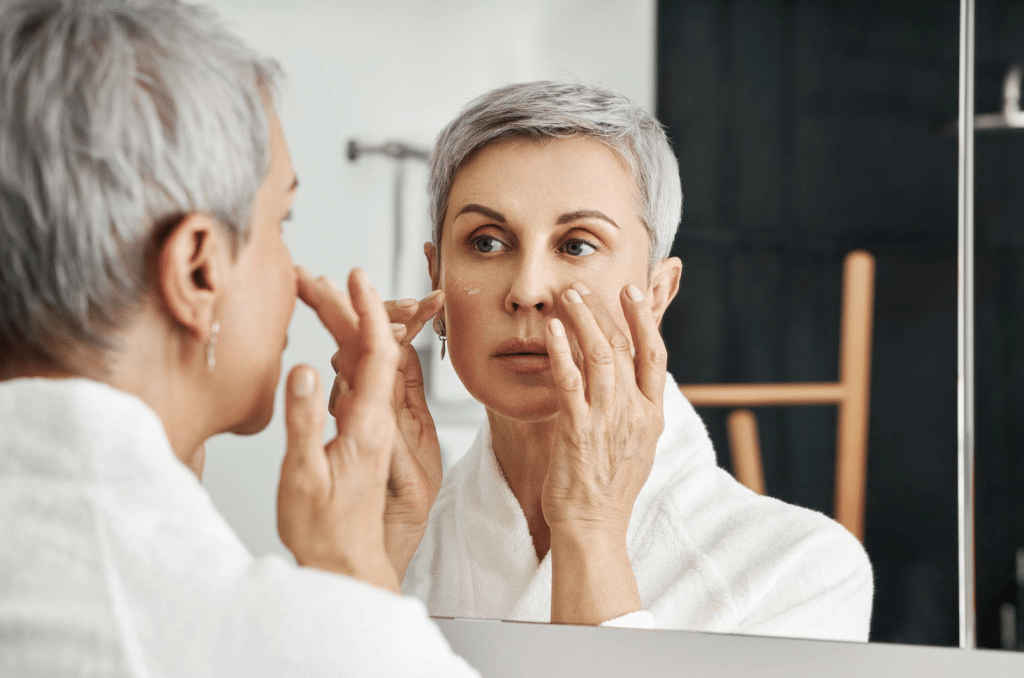Introduction to Retinol Body Oil
Retinol body oil is quickly becoming a must-have in the world of skincare. This innovative product combines retinol’s benefits with body oil’s nourishing properties, offering a comprehensive solution for various skin concerns. Retinol oil is especially popular due to its ability to penetrate deeply into the skin, delivering impressive results.
Renowned for its capacity to promote collagen synthesis and cell turnover, retinol has long been a dermatologist’s best friend. As a body oil, it may benefit broader areas of the skin and is a fantastic choice for treating issues including uneven skin tone, dryness, and signs of aging.
Benefits of Retinol Body Oil
While retinol body oil has many advantages, its anti-aging qualities are its most well-known benefit. By increasing collagen formation and promoting cell turnover, this potent substance helps minimize the appearance of fine lines and wrinkles. The skin appears younger and more luminous after these procedures.
Additionally, retinol body oil can improve skin texture and tone. It contributes to a more uniform skin tone by lessening the visibility of pores and hyperpigmentation. Retinol has the potential to significantly improve the condition of body acne sufferers by lowering inflammation and preventing clogged pores.
How to Use Retinol Body Oil
Adding retinol body oil to your skincare routine is simple. First, apply a small amount—ideally in the evening—to clean, dry skin. Massage it in gentle circular motions until the oil is fully absorbed. For novices, applying cosmetics merely once or twice a week is a fine place to start. You can gradually boost the frequency as your skin becomes more tolerant.
Next, you must apply a moisturizer to keep the moisture in. It is essential to wear broad-spectrum sunscreen during the day to protect your skin from UV radiation because retinol can also make the skin more susceptible to sunshine.
Common Myths About Retinol
Retinol is widely used, but a few misconceptions about it must be dispelled. The idea that retinol thins the skin is untrue. By increasing collagen, it thickens the dermis and gives the skin greater elasticity and resilience. Another fallacy is that retinol is overly abrasive for delicate skin. To reduce irritation, though, many dermatologists advise lowering the concentration at first and then raising it gradually.
More people will be able to benefit from retinol body oil quickly and easily by dispelling these myths.
Retinol vs. Other Anti-Aging Ingredients
Among other anti-aging substances, retinol is unique in that it can encourage the creation of collagen and cell turnover. Although peptides and hyaluronic acid are also beneficial substances, their modes of action are distinct. Peptides tell the skin to make more collagen, while hyaluronic acid moisturizes the skin to make it look plumper and less noticeable of fine wrinkles.
When paired with these ingredients, retinol can provide a complete skincare treatment that treats various problems and enhances the skin’s overall health.
Potential Side Effects and How to Avoid Them
Even though retinol body oil is very beneficial, when it is initially used, it may have adverse effects including redness, dryness, and peeling. Start with a lesser concentration and progressively increase your usage to reduce negative effects. After taking retinol, always use a moisturizing moisturizer; try applying it every other night or even less frequently.
Using retinol while limiting sun exposure and wearing a broad-spectrum sunscreen are also essential for skin protection.
Conclusion
Retinol body oil has proven to be a must-have in any skincare regimen, offering benefits from anti-aging to improving skin texture and tone. Understanding how to use it effectively and debunking common myths can maximize its positive impact on your skin. Incorporating retinol oil into your routine could be the key to achieving healthier, more radiant skin.
